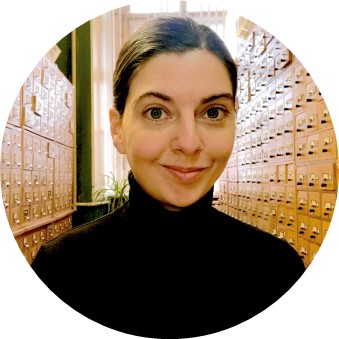Seeds as Deep Time Technologies
Abstract
This talk aims to unite diverse insights in the humanities, social sciences, and natural sciences by theorizing seeds as deep time technologies. Regarding the seed as a technology allows us to understand actors and processes of improvement that constitute the material form of the seed and its demarcation according to commercial and scientific logics, including but not limited to recent species of intellectual property rights and genetic modification. Through a discussion of natural science, deconstruction of naturalized categories of production and innovation, and critical genealogy of narratives of domestication and civilization, the cultural and temporal depth of seeds comes into focus, casting cultivation as a collaborative project with a 10,000-year history.
About the speaker
 Associate Professor Courtney Fullilove
Associate Professor Courtney Fullilove
Wesleyan University
Courtney Fullilove teaches nineteenth-century U.S. social history, environmental history, and the history of science and technology in global perspective. She researches the history of practices now gathered under the rubric of world development: sustainability, biodiversity, intellectual property law, traditional knowledge, and cultural heritage. She is author of The Profit of the Earth: The Global Seeds of American Agriculture (University of Chicago Press, 2017) and is currently working on a book about biodiversity preservation. She holds a PhD in History from Columbia University.
About People, Plants and the Law Online Lecture Series
The People, Plants, and the Law lecture series explores the legal and lively entanglements of human and botanical worlds.
Today people engage with and relate to plants in diverse and sometimes divergent ways. Seeds—and the plants that they produce—may be receptacles of memory, sacred forms of sustenance, or sites of resistance in struggles over food sovereignty. Simultaneously, they may be repositories of gene sequences, Indigenous knowledge, bulk commodities, or key components of economic development projects and food security programs.
This lecture series explores the special role of the law in shaping these different engagements, whether in farmers’ fields, scientific laboratories, international markets, or elsewhere.
Note that all dates and times displayed are in Australian Eastern Standard Time (AEST).


